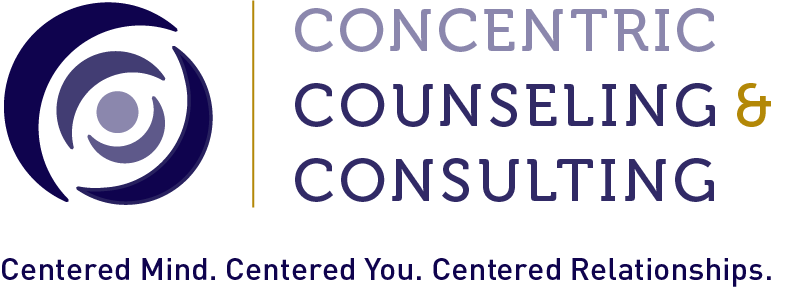The Role of Anxiety in Living an Authentic Life
/By Concentric Counselor Christian Younginer, LPC, NCC
To be brief, anxiety can suck. The persistent worry of imagined scenarios can plague the mind and exhaust the body. It can manifest as brief periods of pronounced worry, a baseline worry for all things, and even panic attacks. But I would like to offer a perspective that may be overlooked in coping with anxiety. That is, can my anxiety teach me something?
Specifically, can my anxiety teach me how to live an authentic, meaningful life? This question shapes Existential Therapy. At its broadest, existential therapy is the endeavor of understanding one’s existence in a therapeutic setting. This is done via an honest exploration of one’s freedom, choice, responsibility, meaning, and inevitable death. Existential psychotherapist Irvin Yalom conceptualizes much of anxiety as death-anxiety (Existential Psychotherapy, p.189). That is, persistent anxiety can be explained as an underlying worry about a life without meaning in the face of approaching death. Death is what allows life to have meaning. If there were no end, then for what should we live? The finiteness of life can motivate, intimidate, and terrify. However, it is this anxiety that can be the canary in the mine of our life.
As we work, study, sleep, parent, eat, play, drive, and journey through life, meaning and purpose can slip through the cracks. Anxiety can creep in, seeming to have no definable impetus. Often enough the death of a loved one, or a diagnostic medical scare can bring perspective -- wherein we confront our death. But one does not need to wait for such a moment to ask these questions, such as “Why am I here?”, “What does it mean to exist?”, and “What is my purpose?”.
Anxiety can be that canary that alerts us of an inauthentic life. It warns of the finiteness of life, and the importance of living a life with meaning. This often manifests as a vague sensation of “running out of time”. Without meaning, one can find life pointless or trite. The finiteness of life no longer motivates, it terrifies. But if we listen to what our anxiety is telling us, perhaps we can redirect our lives towards meaning.
How does one do this?
An example from philosophy may be of use. In Frederick Nietzsche’s The Gay Science, Nietzsche offers the reader an aphorism he titles ‘The Heaviest Burden’. He proceeds to ask the reader: if a demon were to order that you must live this life in eternal recurrence, every moment, detail, pain, and triumph- would you thank him or curse him? (The Gay Science, Aphorism #341). So, do I live my life in such a way that were I to re-live this life on repeat, I would praise the demon with gratitude for the opportunity? Or would this prospect bring about the abysmal dread of re-living a meaningless life? It is this precise idea where anxiety comes into play. Am I experiencing the anxiety and dread of a life not worth re-living?
It is this question that can help steer us towards meaning. Do I live in such a way that were I to re-live this life on repeat, would I be in joyful contentment or in abysmal dread? This is a tough question with which to be confronted. However, we can use this question as a beginning: the moment one begins to ask “does my life have meaning?”. Rather than be frozen by the possible dread this question instills, one can frame this as the moment in which a new life begins. As always, Confucius said it best, “ We have two lives, and the second begins when we realize we only have one.”
Determining WHAT is meaningful is a personal journey that can take time to uncover. But knowing thyself was important to Plato for a reason. It is this existential journey of a human confronted with death, through anxiety, uncovering that which gives their life meaning.
To conclude, yes, anxiety does suck. But as we work to cope with it, let us ask -- What is this anxiety trying to teach me? Anxiety very well may lead us away from the existential dread of an unexamined life, and instead towards finding a meaningful life worthy of repeating.


